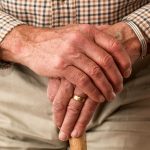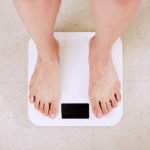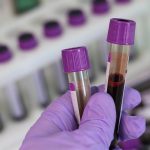This common antibiotic drug linked to higher heart attack risk
In a new study from the University of Dundee, researchers found why a commonly used antibiotic can lead to an increased risk of heart...
Higher blood pressure at night than in daytime may increase Alzheimer’s disease risk
In a new study from Uppsala University, researchers found that higher blood pressure at night than in daytime may be a risk factor for...
Risk for severe COVID-19 increases with your BMI above this number
In a new study from the University of Oxford, researchers found the risk for severe COVID-19 leading to hospital admission and death is increased...
1 in 3 Americans lacks a basic understanding of skin cancer
In a new survey from the American Academy of Dermatology (AAD), researchers found that one-third of Americans lack a basic understanding of sun safety...
This drug could help lower breast cancer risk with less side effect
While the drug tamoxifen reduces the risk of developing breast cancer and prevents recurrence, the side effects cause many women to discontinue their treatment.
In...
This common nutrient may be key to better diabetes treatments
Diabetes is a major risk factor for heart and circulatory diseases.
Around 300,000 adults have been diagnosed with diabetes in Scotland and it is estimated...
Opioid overdose deaths are rising. Can we make less addictive painkillers?
Opioids are the most powerful painkillers we have, but they’re incredibly addictive.
Tens of thousands of people in the U.S. die of an opioid overdose...
Mammograms and the COVID-19 vaccine: What you need to know
Some women who have gotten vaccinated for COVID-19 have noticed a startling development ― lumps that in the past might have meant cancer.
As health...
What you need to know about blood clots
Your blood is an amazing, multi-purpose substance. It flows continuously through the body, carrying oxygen and nutrients to your cells. But if you get...
This widely used mental health drug may harm the brain
In a recent study from several North American centers, researchers found that a commonly used anti-psychotic medication was linked to adverse changes in brain...










